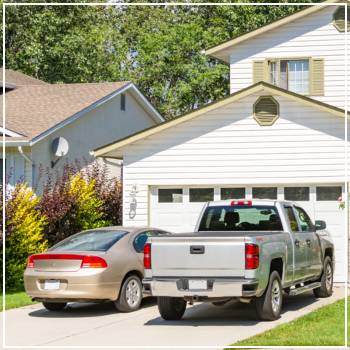 For most Americans, statewide shelter-in-place rules have put the daily commute on pause. Many people are going out less often, save for the occasional trip to the supermarket or pharmacy for essentials.
For most Americans, statewide shelter-in-place rules have put the daily commute on pause. Many people are going out less often, save for the occasional trip to the supermarket or pharmacy for essentials.
Although these steps are necessary to help stop the spread of COVID-19, your car is sitting unused in the driveway or garage.
Less mileage means paying for gas less often, yet not using your car also has a few downsides: the battery starts to drain, rodents are more likely to make nests in the engine and parts may start to rust. To ensure your car’s ready to go when you are, follow these steps to care for it during the current shutdown.
Drive It Once a Week
Beyond short trips to nearby stores, your car is likely not being driven far enough. As a benchmark, make you drive for at least 20 minutes to help with:
- Running the engine and alternator
- Keeping your battery charged
- Circulating oils and other fluids to prevent congealing
- Getting your brakes moving, so they don’t develop rust
- Preventing belts from drying out and cracking
- Getting your tires moving to avoid flat spots on the surface
The same applies if you own an electric or hybrid vehicle. You may assume the charging system will give the battery enough juice, but a battery that’s idle for extended periods of time will eventually discharge.
As an alternative to driving around, consider keeping the battery on a trickle charge. Depending on how long you plan to leave the car, you may also want to remove the battery, take off the tires and wheels.
Keep the Interior & Exterior Clean
Where you store your car, as well as how well you’ve treated it post-winter, will determine how much cleaning and detailing it now requires. Storing it uncovered in your driveway leaves it vulnerable to UV damage, bird droppings, tree sap and accumulated dust and debris – and that doesn’t factor in all the dirt and rock salt from driving around in winter.
To start, treat your car like you would your home’s interior – disinfect and decontaminate the cabin, including all seats, arm rests, the center console and the steering wheel. However, a bleach-based cleaner is not ideal. Wipe everything down with a microfiber cloth and solution that’s 70 percent isopropyl alcohol and 30 percent water – this solution is not meant for suede and leather upholstery.
For the exterior, use a weatherproof cover or park in the shade. If this isn’t possible, make it a priority to regularly wash down or spot-clean your car, so these contaminants don’t affect the paint.
In all cases, avoid using bleach, hydrogen peroxide and ammonia to clean your car, as these can damage screens and upholstery.
Check Your Tires
Your tires may develop flat spots when your car remains in place for a month or more; low tire pressure and cooler conditions exacerbate this effect. To avoid flat spots forming on the rubber, routinely check the tire pressure. If it drops, inflate your tires to the PSI specified on the inside door.
Avoid Using the Parking Brake
When you leave your car’s parking brake up for a month or more, the brake pads actually attach to the rotors and rust begins to develop on the surface of the rotors. While going for a drive decreases this latter incidence, it’s also a good idea to leave the parking brake down if you won’t be driving frequently.
Check for Pests
Rats, mice and squirrels can all do a number on your car. Aside from building nests and storing food in your engine, they may gnaw on the wires and other components, preventing the engine from starting.
Keeping a vehicle in one place increases the likelihood rodents and other pests will find their way in and build a home in your engine. If you won’t be driving regularly, pop the hood to check for any nests around the engine compartment, then look around the tires and wheel wells for the same.
Make a Plan for Long-Term Storage
Storage plans can lengthen the life of seasonal vehicles, such as motorcycles and boats. If you expect you’ll be at home for a few more months, treat your car the same way. Along with a weatherproof covering and regular interior and exterior cleanings:
- Change the oil
- Fill the gas tank up
- Add a fuel stabilizer
- Check all other fluids; without lubrication, gaskets and hoses may crack
Many states consider car maintenance an essential service. DaSilva’s Auto Body is currently offering “No Touch” services to keep your car running smoothly. If you need vehicle maintenance during the COVID-19 pandemic, contact our Naugatuck shop today.




